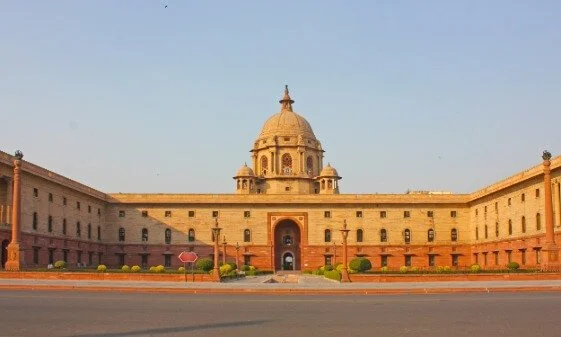Three New Bills Seek to Allow Removal of PMs and CMs
Bills Mandate Sacking After 30 Days of Detention Without Conviction
August 20, 2025
Union home minister Amit Shah has tabled three bills in the Lok Sabha that empower the removal of the prime minister, chief ministers and other ministers if they remain in jail for 30 consecutive days on serious criminal charges. The move appears to be an attempt by the government to expand executive powers over elected offices, including in Jammu and Kashmir where statehood had been expected.
When the Constitution (130th Amendment) Bill, the Government of Union Territories (Amendment) Bill and the Jammu and Kashmir Reorganisation (Amendment) Bill were presented in the lower house on Aug. 20, opposition MPs protested the move by throwing pieces of paper at Shah, according to NDTV.
The bills have been referred to a joint parliamentary committee for scrutiny.
The 130th Amendment Bill seeks to alter Article 75 of the Constitution to state that any minister arrested and detained for 30 consecutive days on charges carrying a punishment of at least five years will be removed from office. The President will act on the advice of the prime minister by the thirty-first day, and if no advice is given, the minister automatically ceases to hold office, according to The Wire.
In the case of the prime minister, the bill requires resignation by the thirty-first day of detention or automatic removal.
The Union Territories Amendment Bill incorporates the same clause into section 45 of the Government of Union Territories Act, 1963, allowing lieutenant governors to remove ministers after 30 days of detention. The Jammu and Kashmir Reorganisation Amendment Bill introduces an identical clause, enabling the lieutenant governor to act on the advice of the chief minister to remove ministers detained for 30 days.
Contrary to earlier government statements that statehood would be restored to J&K, this amendment expands central authority in the region.
The provisions extend to elected chief ministers, permitting their removal without conviction if they remain in detention beyond the set period. The bills together create a framework in which governors and lieutenant governors gain enhanced power over state leadership, and the president gains similar authority over the prime minister.
This legislative package indicates a centralising trend in Indian federalism. It introduces a mechanism that can displace elected leaders through the actions of law enforcement, shifting the balance of accountability away from electoral processes. The power of removal, once grounded in legislative confidence votes or judicial conviction, is now tied to prolonged detention, which is administratively easier to secure.
This design raises the prospect of partisan use. The expanded powers rest heavily on the role of central agencies in initiating arrests, and on executive authority in enforcing removal. Such a system risks violating the principle that electoral legitimacy is sustained until due conviction or a parliamentary vote alters it.
In the context of Jammu and Kashmir, the amendment carries further consequences. Instead of advancing devolution and statehood as promised before the Supreme Court, the new provisions strengthen the Union government’s hold. This enhances the asymmetry between elected leaders in the region and appointed officials of the centre, affecting both the symbolism and substance of democratic self-rule.
Short-term, the bills will provoke sharp contestation in Parliament and among states governed by opposition parties, where the fear of targeted arrests is more pronounced. Long-term, if enacted, they could alter the institutional architecture of Indian democracy by introducing a route to dislodge governments through detention without conviction, potentially weakening federal balance and political stability.
You have just read a News Briefing by Newsreel Asia, written to cut through the noise and present a single story for the day that matters to you. Certain briefings, based on media reports, seek to keep readers informed about events across India, others offer a perspective rooted in humanitarian concerns and some provide our own exclusive reporting. We encourage you to read the News Briefing each day. Our objective is to help you become not just an informed citizen, but an engaged and responsible one.

